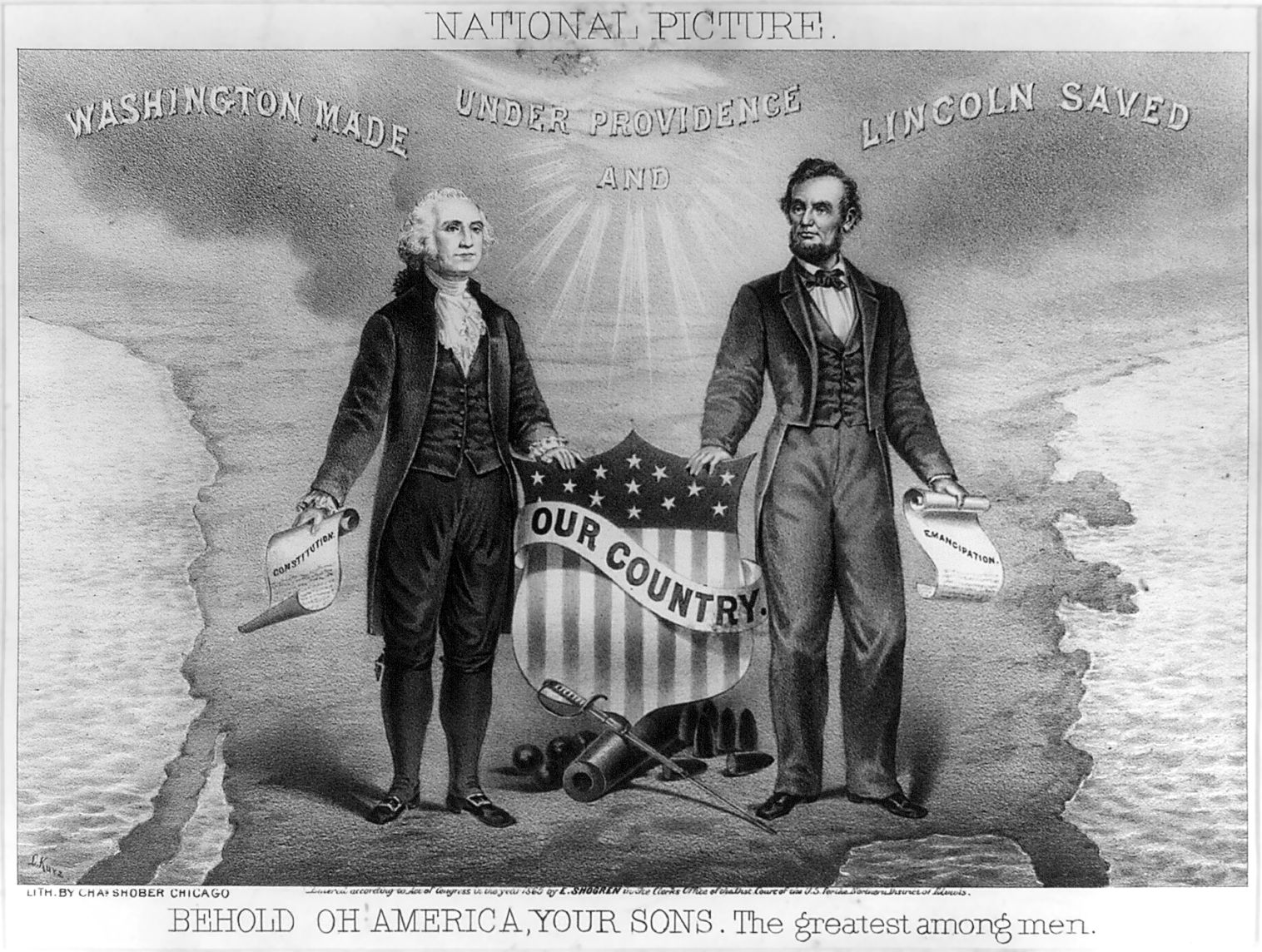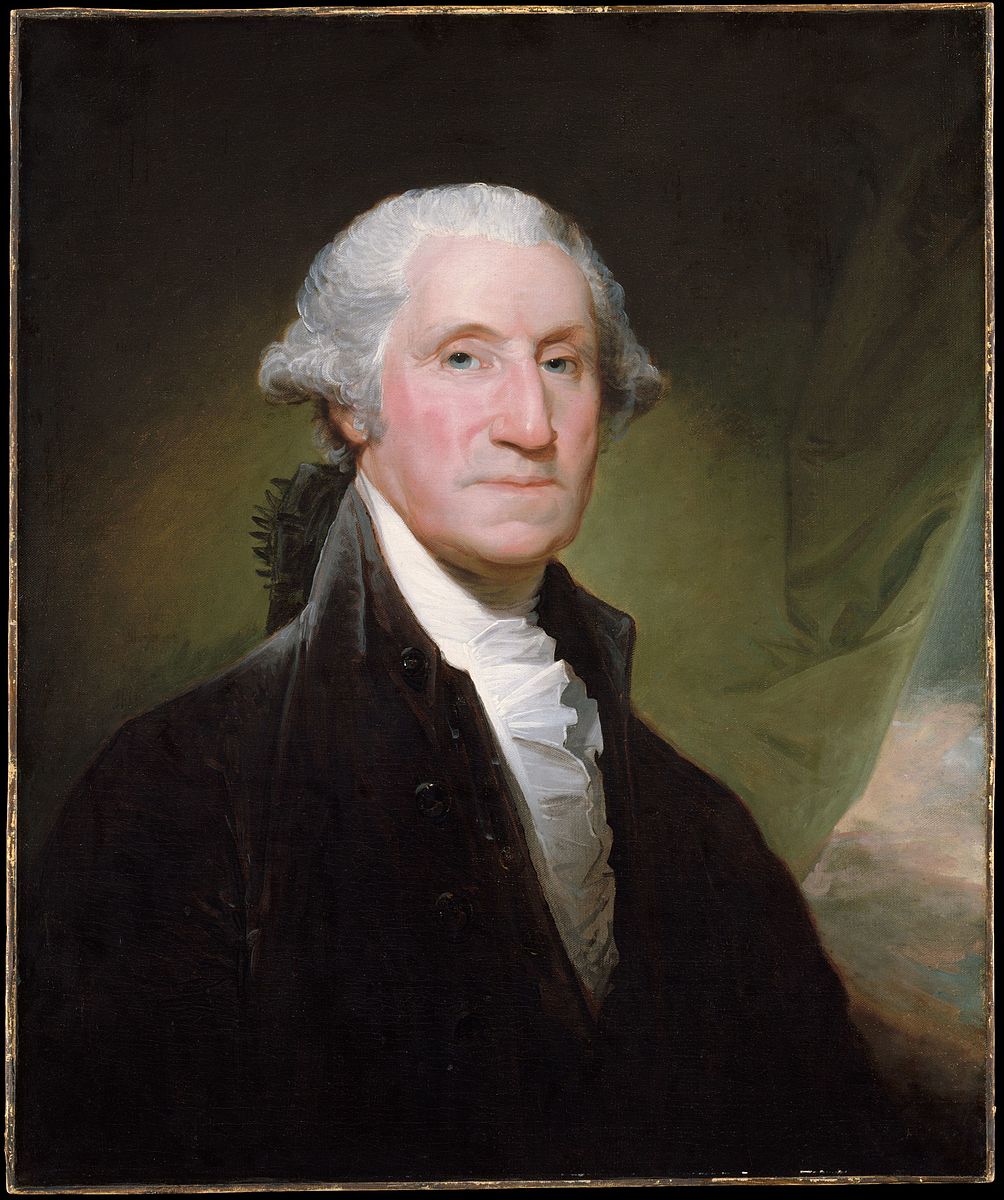Presidents Day, as we now call it, began as an officially recognized celebration of George Washington’s birthday in 1885. During the 1960s, Congress passed the Uniform Monday Holiday Act, which pushed several federal holiday observances to Mondays in order to allow for three-day weekends. This effectively moved Washington’s Birthday from February 22 to the third Monday in February. Despite this change, the day, even now, is still officially recognized as “Washington’s Birthday” by the federal government.
After the passage of the Act, the new date’s proximity to Lincoln’s birthday soon encouraged advertisers to promote “Presidents Day” sales and offers for the extended weekend. Many lament that the day has lost its true meaning – they argue that it is no longer a day to recognize our first president, but has been overly commercialized, a meaningless extra vacation day for most citizens.
On the occasion of Presidents Day, the JMC presents its resource collections on the two great presidents most often associated with the day, as well as a series of articles arguing for a return to the real meaning of Washington’s Birthday.
Below are the JMC’s resource collections on the two great presidents most often associated with Presidents Day, as well as a series of articles arguing for a return to the real meaning of Washington’s Birthday. Browse these resources or jump from section to section by clicking the links below:
Resource pages on George Washington and Abraham Lincoln:
Commentary and articles arguing for a return to Washington’s Birthday:
Why We Should Celebrate Washington’s Birthday, Not President’s Day
 JMC fellow Arthur Milikh has written an article for the Daily Signal arguing that citizens should honor Washington on his birthday, not presidents in general:
JMC fellow Arthur Milikh has written an article for the Daily Signal arguing that citizens should honor Washington on his birthday, not presidents in general:
“America’s greatest statesmen did not think that national holidays were merely about family dinners, watching fireworks, or getting a three-day weekend.
These occasions, to the contrary, were needed to encourage all citizens to together raise their gaze above the enthrallment of their private lives, so as to see or imagine something greater than themselves and worthy of their admiration.”
Click here to read the article on the Daily Signal >>
Presidents’ Day: Losing Our Heroes, One Day at a Time
 David Hazony remembers celebrating two holidays as a child, Washington’s Birthday and Lincoln’s Birthday:
David Hazony remembers celebrating two holidays as a child, Washington’s Birthday and Lincoln’s Birthday:
“Life is fluid: Anything you don’t fight to keep, you risk losing. Over the past generation two crucial holidays in the American calendar—Washington’s and Lincoln’s Birthdays—have merged and morphed into a single anemic Monday known widely as “Presidents’ Day.”
When I was a kid growing up in New Jersey, we had separate special days for each of them. A clear logic drove both observance and education: We learned about the life of Washington, about his successes and failures, about his humility, about his incredible perseverance and tactical genius; we learned of Valley Forge, of his efforts to keep the revolution going, about his running out of the chamber in shame when chosen to be the first president.”
Read the article at Commentary Magazine >>
It’s Washington’s Birthday, Not Presidents’ Day
 Gleaves Whitney argues that celebrating Washington’s Birthday would advance civic education and help inform children about one of our most important founders:
Gleaves Whitney argues that celebrating Washington’s Birthday would advance civic education and help inform children about one of our most important founders:
“People ask why a few of us presidential junkies would like to see Presidents’ Day changed back to Washington’s Birthday. The technical explanation has to do with a misguided law called HR 15951 that was passed in 1968 to make federal holidays less complicated. The real answer is simply this: George Washington is our greatest president, and too few American children know why.
George Washington earned the respect even of his former enemy, King George III, by doing something exceedingly rare in history: When he had the chance to increase personal power, he decreased it — not once, not twice, but repeatedly. During the American Revolution, Washington put service before self. His personal example was his greatest gift to the nation. It has often been said that the “Father of our country” was less eloquent than Jefferson; less educated than Madison; less experienced than Franklin; less talented than Hamilton. Yet all these leaders looked to Washington to lead them because they trusted him with power. He didn’t need power.”
Read the entire article at the Imaginative Conservative >>
*If you are a JMC fellow who’s published on Presidents Day, George Washington, or Abraham Lincoln, and would like your work included here, send it to us at academics@gojmc.org.
![]()
![]() Follow us on Facebook and Twitter for updates about lectures, publications, podcasts, and events related to American political thought, United States history, and the Western tradition!
Follow us on Facebook and Twitter for updates about lectures, publications, podcasts, and events related to American political thought, United States history, and the Western tradition!
Want to help the Jack Miller Center transform higher education? Donate today.


